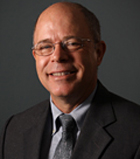- News
31 May 2011
Peregrine’s co-founders to receive IEEE award for Emerging Technologies
At the 2011 IEEE International Microwave Symposium (IMS 2011) in Baltimore, MD, USA on 6 June, the 2011 IEEE Daniel E. Noble Award for Emerging Technologies will be presented to IEEE members Mark L. Burgener and Ronald E. Reedy, who in 1990 co-founded Peregrine Semiconductor Corp of San Diego, CA, USA, a fabless provider of radio-frequency (RF) integrated circuits (ICs) based on silicon-on-sapphire (SOS).
Sponsored by the Motorola Foundation, the award recognizes them for basic R&D of SOS technology culminating in high-yield, commercially viable ICs that have impacted the wireless communications market.
 IEEE says that Burgener and Reedy stood by SOS technology that, despite great promise, had initially been abandoned by semiconductor market leaders. The advantages of using sapphire as a substrate for ICs include its high resistance to radiation and excellent insulating properties that prevent stray currents from spreading to other circuits. First discovered in the 1960s, SOS technology presented manufacturing problems that prevented companies from pursuing commercialization. The persistence of Burgener and Reedy during the 1980s and 1990s overcame these obstacles, making SOS commercially viable and enabling it to penetrate the wireless communications market. This emerging technology produces ICs with improved speed, lower power consumption and more isolation compared with bulk silicon circuits.
IEEE says that Burgener and Reedy stood by SOS technology that, despite great promise, had initially been abandoned by semiconductor market leaders. The advantages of using sapphire as a substrate for ICs include its high resistance to radiation and excellent insulating properties that prevent stray currents from spreading to other circuits. First discovered in the 1960s, SOS technology presented manufacturing problems that prevented companies from pursuing commercialization. The persistence of Burgener and Reedy during the 1980s and 1990s overcame these obstacles, making SOS commercially viable and enabling it to penetrate the wireless communications market. This emerging technology produces ICs with improved speed, lower power consumption and more isolation compared with bulk silicon circuits.
Pictures: Mark L. Burgener (above) and Ronald E. Reedy (below).
 Even after demonstrating viable SOS circuits, Burgener and Reedy had to erase the stigma associated with the earlier problems before SOS could become commercially accepted, says IEEE. Funding was difficult to obtain, engineers were wary of becoming involved with the technology, and technical hurdles at fabrication facilities needed to be solved based on the unique requirements of producing SOS circuits. To spur commercialization efforts, they co-founded Peregrine Semiconductor in 1990, and developed the UltraCMOS process, which solved the critical manufacturing issues and made SOS cost-effective. After an initial shipment of 100 chips in 1995, Peregrine has now sold over 500 million UltraCMOS integrated circuits.
Even after demonstrating viable SOS circuits, Burgener and Reedy had to erase the stigma associated with the earlier problems before SOS could become commercially accepted, says IEEE. Funding was difficult to obtain, engineers were wary of becoming involved with the technology, and technical hurdles at fabrication facilities needed to be solved based on the unique requirements of producing SOS circuits. To spur commercialization efforts, they co-founded Peregrine Semiconductor in 1990, and developed the UltraCMOS process, which solved the critical manufacturing issues and made SOS cost-effective. After an initial shipment of 100 chips in 1995, Peregrine has now sold over 500 million UltraCMOS integrated circuits.
Burgener holds 22 patents on SOS and related IC technologies. He received his bachelor’s degree in physics from the University of California, Berkeley, and his master’s in physics and doctorate in applied physics from the University of California, San Diego. Burgener began his career with the Naval Ocean Systems Center (now the Naval Research and Development Center), San Diego, in 1980. He is currently VP of advanced research at Peregrine.
Reedy holds 18 patents on SOS and optoelectronics technologies. He received a bachelor’s degree in electrical engineering from the US Naval Academy, Annapolis, MD; a master’s degree in electrical engineering from the US Naval Postgraduate School, Monterey, CA; and a doctorate in electrical engineering and applied physics from the University of California, San Diego. After assignments in the US Navy, he ended his active duty at the Naval Electronics Laboratory (now the Naval Research and Development Center), San Diego. He is currently Peregrine's chief operating officer.
